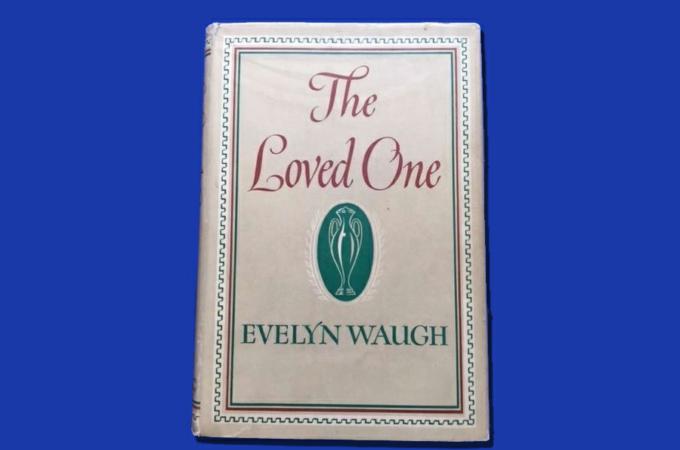'The Loved One'
Just 70 years ago this month a slender novel bearing the innocuous title The Loved One made its appearance in the United States. My copy, a first edition, records four reprintings between June and August. Today the book is still in print and apparently still selling briskly.
That is not a bad showing for a book that has something in it to offend just about everyone--a story that lacks any truly attractive characters, features two suicides and a genuinely horrific ending, and carries a profoundly serious message that many readers over the years haven't gotten.
The Loved One is the work of the British novelist Evelyn Waugh, a convert to Catholicism who is widely--and correctly--considered to have been one of the finest writers in English of the 20th century. The book came shortly after his hugely successful novel Brideshead Revisited and not long before his World War II trilogy, Sword of Honor, which some people (I among them) regard as his finest work.
Written not long after a U.S. visit that seems to have confirmed Waugh in his anti-Americanism, The Loved One is generally described as a satire aimed at multiple targets. These include the funeral industry, expatriate Englishmen in Hollywood, and the popular culture of the 1940s.
In particular, there is a devastating portrait of a huge cemetery called Whispering Glades--a kind of funerary theme park where death is sentimentalized and cosmeticized beyond recognition--together with its ghastly counterpart, a nearby pet cemetery called the Happier Hunting Ground.
But that isn't all.
The tipoff to the book's deeper, darker meaning comes early, when an elderly Englishman whose Hollywood career is in a terminal nosedive makes passing reference to a magazine piece about Soviet scientists who are said to be keeping a severed dog's head alive: "It dribbles at the tongue when it smells a cat. That's what all of us are, you know, out here." The aging Englishman means "out here in Hollywood." But Waugh means "out here in the world where materialism reigns."
The point of what seems to be a casual aside becomes devastatingly clear late in the story, when the body of a Whispering Glades cosmetician who has taken her life at her workplace (to the huge embarrassment of the head mortician, her suitor) is surreptitiously disposed of in the crematorium of the Happier Hunting Ground.
Waugh could be riotously funny when he set his mind to it and there are amusing stretches in The Loved One, but the book as a whole is satire in the tradition of the Roman poet Juvenal and Jonathan Swift, a satirist whose "A Modest Proposal" skewered British attitudes toward the Irish by suggesting cannibalism as the solution to Irish poverty.
Waugh for his part is taking deadly aim at philosophical materialism and its implications for human self-understanding. If the materialists are right about human beings, he's slyly saying, there is no special reason to make a distinction between the two cemeteries of his tale or to turn up our noses at those Soviet scientists and their dog's head.
Evelyn Waugh had a reputation for being a disagreeable man. One of his friends once asked him how he could be so unpleasant and still claim to be a Catholic. To which he replied: "You have no idea how much nastier I would be if I was not a Catholic. Without supernatural aid, I would hardly be a human being." In its own brilliant way The Loved One makes the same point.
- Russell Shaw is the author of more than twenty books. He is a consultor of the Pontifical Council for Social Communications and served as communications director for the U.S. Bishops.



















